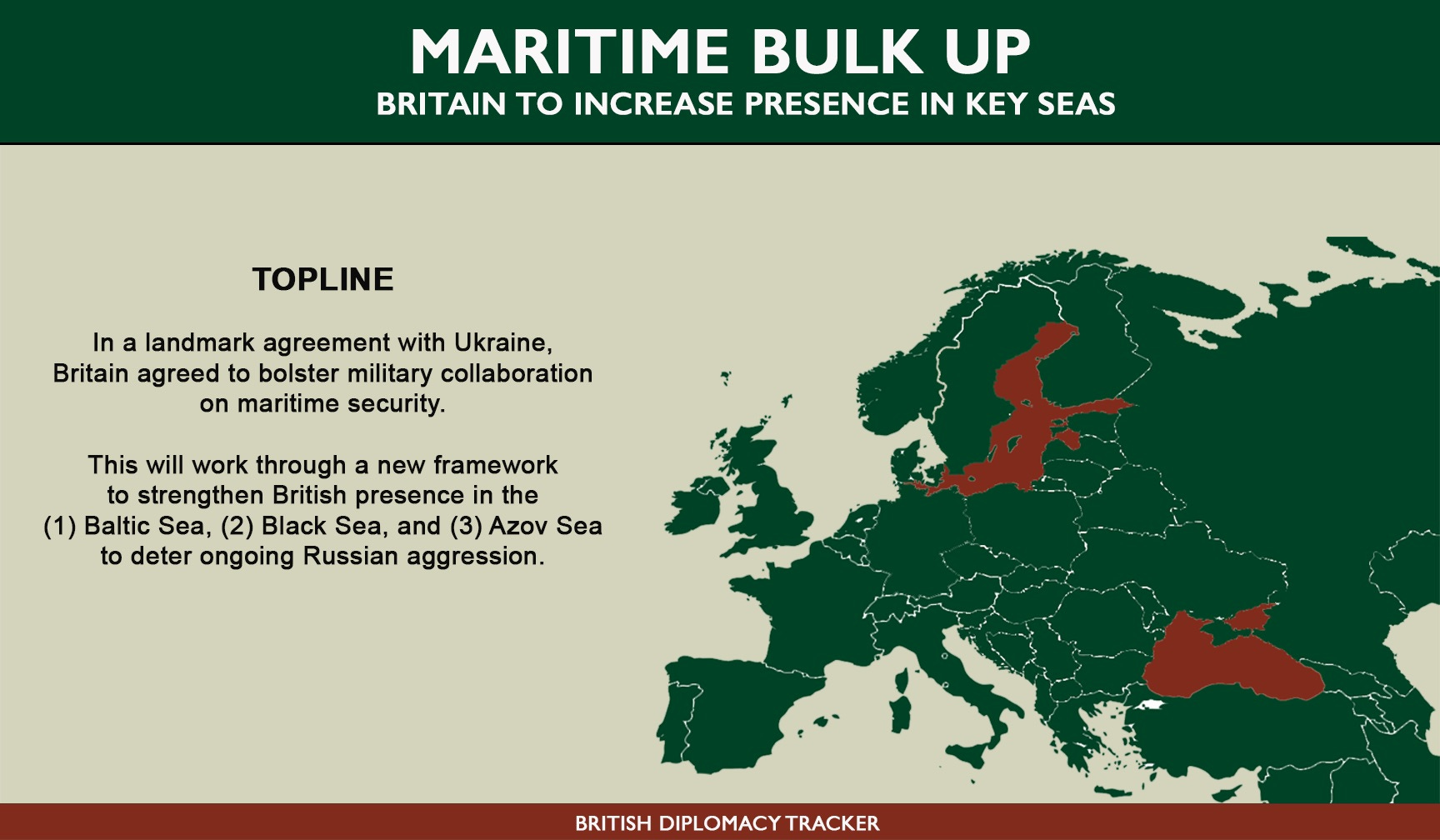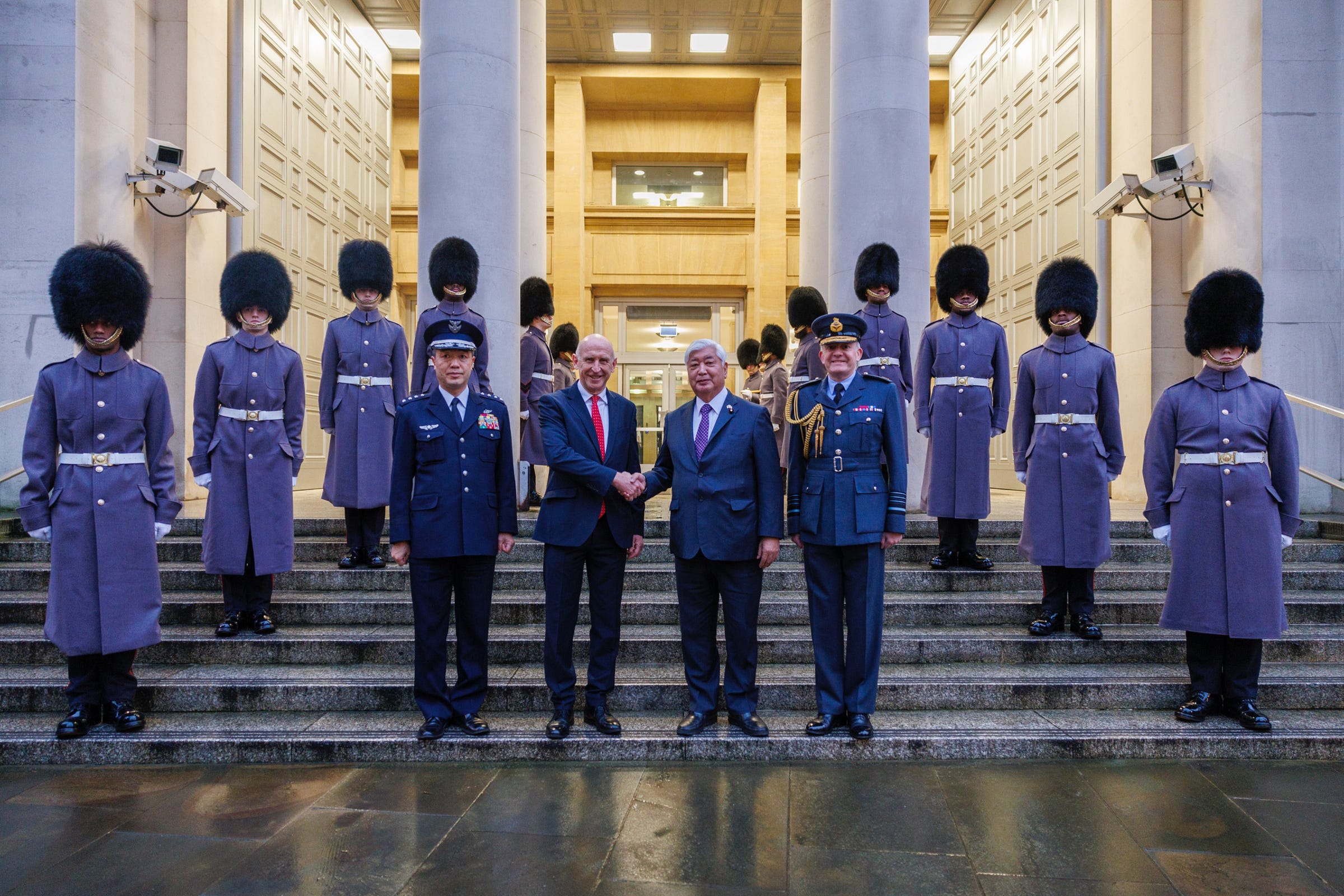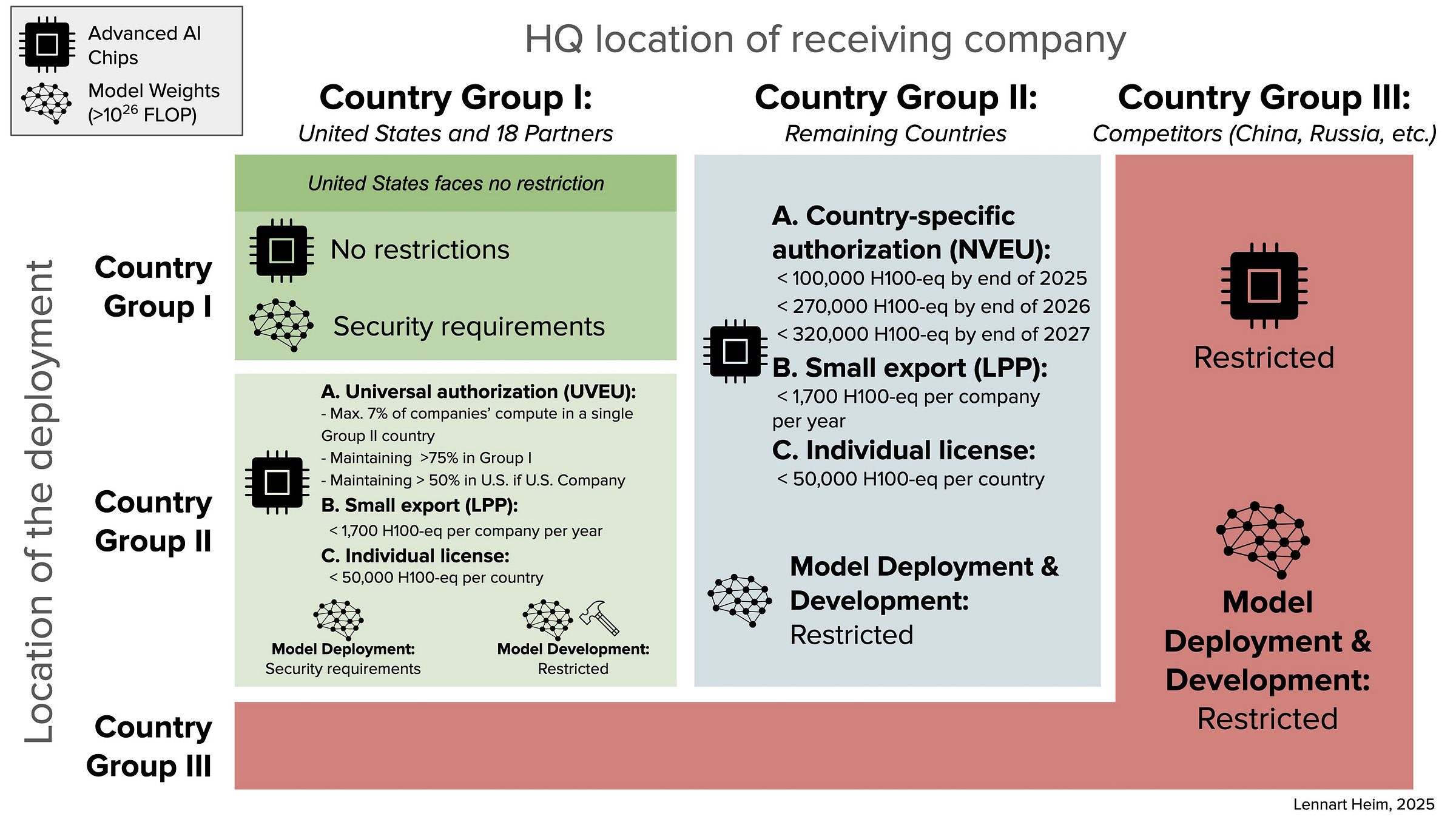Telegram 006
Sam Hogg's British Diplomacy Tracker
Hello,
In the moment, abstract things - feeling, views, concerns - are hard to gauge or quantify. Change is one such thing. People can feel something is happening, that things are slightly unusual, or that what was once normal is increasingly no longer so. And with the passage of time, as days turn to months turn to years, we can begin to gather data points to actually show that change.
Consider the following. In 1837, the telegraph was used for the first time, springing up alongside Britain’s rapid railroad expansion. By 1848 there were 1,800 miles of British railways equipped with telegraphs, linking together 200 major towns and cities. In 1866 the first undersea cable between the United States and Britain was laid down. And what was the impact?
Between 1836 and 1856, British newspaper sales rose by 70%. Between 1856 and 1882 that went up a further 600%. Can we even begin to imagine what that must have been like? The flow of information from around the world, from Parliament, from New York, from the furthest reaches of the Empire. A new technology, a series of overhead and underwater arteries carrying business announcements, celebrity deaths, political scandals: all available to the reader for less than a shilling. Information and ideas now flowed freely.
I highlight this because we are currently experiencing this with artificial intelligence. AI is changing things around us, above us and beneath us in a way that many of us find hard to quantify or remove from the abstract. Governments are trying to work it out: this week the British and American administrations announced major AI set pieces, which I examine below. And unlike the explosion in the British printing press in the Victorian era, this AI-fulled change won’t take 50 years to realise. It may take less than two.
— Sam Hogg (come and say hello)
Noted
In 1909, as concerns around Germany’s naval build-up began to reach Westminster, Conservative MPs urged for more British battleships with the cry ‘we want eight - and we won’t wait.”
Keir Starmer, Britain’s Prime Minister, visited Ukraine for the first time since taking office. He announced a one-hundred-year partnership, which will see closer ties around nine pillars. In practicality, it will initially involve bulking up a presence in various seas around Ukraine.
Keir Starmer, Prime Minister, travelled to Poland to start talks with Polish Prime Minister Donald Tusk on the new UK-Poland Treaty, which will bring the two countries closer together to tackle shared threats.
The British Government welcomed a ceasefire between Israel and Hamas. Strategic communications from Downing Street and the Foreign Office acknowledged the significant amount of work still to come.
Keir Starmer launched a new UK Artificial Intelligence (AI) approach. Positively, it recognises that AI is and will be one of the critical tools in any sovereign state’s arsenal, and one in which Britain can lead in certain areas. Troublingly, much of the push into AI sovereignty will require access to cheap energy and finance: both of which are not readily available in Britain at this moment.
David Lammy, the Foreign Secretary, visited Saudi Arabia over the weekend. He was in Riyadh to discuss the situation in Syria, meeting the interim Foreign Minister of Syria, Asaad al-Shaibani, and peers from Bahrain, Egypt, France, Germany, Iraq, Italy, Kuwait, Jordan, Lebanon, Oman, Qatar, Turkiye, UAE, USA, EU, League of Arab States and the UN.
John Healey, the Defence Secretary, met with his Japanese counterpart Gen Nakatani. The pair discussed progress on the Global Combat Air Programme (GCAP) – a joint initiative between the UK, Japan, and Italy to develop a next-generation combat aircraft – as well as the UK Carrier Strike Group’s visit to Japan later this year.
Tulip Siddiq, formerly the City and anti-corruption Minister and a somewhat regular fixture in these Telegrams, stepped down from her Ministerial positions. Her resignation followed multiple papers scrutinising her links to Bangladesh’s Awami League, various properties in London, and undisclosed ownership structures.
Britain launched a Soft Power Council. Its mission “is the pursuit of economic growth, ensuring that the renewed approach to soft power will bring tangible economic benefits to the people of the UK.”
1. Ceasefires

Over a lunch with the Financial Times in 2018, the late Henry Kissinger was pressed to share a view on then-President Donald Trump. After some consideration, he offered that “Trump may be one of those figures in history who appears from time to time to mark the end of an era and to force it to give up its old pretences.” Indeed, a spectre is haunting Europe and the Middle East —the spectre of Donald Trump. So it came to pass this week that politicians around the world and from across the political spectrum decided to rush through agreements ahead of Trump’s return to the White House.
From the Middle East, news of an Israel-Hamas ceasefire was met with support from Britain. Prime Minister Keir Starmer and Foreign Secretary David Lammy both issued statements, with the former noting “this ceasefire must allow for a huge surge in humanitarian aid, which is so desperately needed to end the suffering in Gaza. And then our attention must turn to how we secure a permanently better future for the Israeli and Palestinian people – grounded in a two-state solution that will guarantee security and stability for Israel, alongside a sovereign and viable Palestine state.” Lammy’s statement to the Commons set out key details of the agreement, including a breakdown of how each phase will work.
Setting aside the clear suffering of those involved, domestically this has been a damaging conflict for the British body politic. Last year’s General Election saw the re-emergence of sectarian campaigning and the creation of a ‘Gaza’ voting bloc in Parliament, a substantial rise in antisemitism across the country, and increased tension for British foreign policy strategy in the region. Other elements will be harder to measure: to what extent did this conflict further voter apathy in the UK? Did it reinforce a view among the British public that this Government has the heft and ability to influence global affairs they care about? What do many of the countries in the so-called Global South think of how Britain played its hand? And so on.
Quoted
“From our first day in office, this Government has pressed for an immediate ceasefire, to free the hostages, and to bring relief, reconstruction and hope to civilians who have suffered so much.”
Foreign Secretary David Lammy on the Israel-Hamas ceasefire
On the European continent, Prime Minister Keir Starmer visited Ukraine for the first time in his premiership and days before Donald Trump was sworn in as President. The timing was critical, with Trump set to push Moscow and Kyiv into ceasefire talks in his opening months, and Bloomberg reporting his team has crafted a wide-ranging sanctions strategy to facilitate an accord. On this specific issue, note closely that the UK's Office of Financial Sanctions Implementation (OFSI) has signed an MoU with the USA's Office of Foreign Assets Control (OFAC) this week which facilitates the exchange of information between the organisations on implementing and enforcing sanctions.
Meeting with President Zelenskyy in Kyiv, Starmer announced a “landmark new 100 Year Partnership between the two countries, broadening and deepening the relationship across defence and non-military areas and enabling closer community links.” In practical terms, these measures included bolstering military collaboration on maritime security, advancing scientific and technological partnerships in areas such as healthcare and drone technology, and fostering educational exchanges through school partnerships. Interestingly, the agreement also positions the UK as a preferred partner for Ukraine's energy sector and critical minerals strategy.
Noted
Ukraine has deposits of 24 out of the European Union's 34 critical minerals, including large stores of graphite, lithium, manganese and iron. The UK’s expertise in extraction could prove very useful indeed in the recovery years.
Additionally, the partnership includes economic support through a new £40 million recovery program called TIGER, aimed at supporting small and medium businesses in Ukraine, and a new Grain Verification Scheme will be launched to track stolen grain from occupied Ukrainian territories. This scheme in particular will be worth analysing as it progresses: led by the UK to the tune of £2m, it formed part of a wider G7 approach to tracking stolen grain using chemical identification of grain origin.
Quoted
“The history of the 21st century is being written here and now.”
Prime Minister Keir Starmer in Kyiv, Ukraine
Finally, Starmer concluded his trip to Europe with a stop in Poland to start talks with Polish Prime Minister Donald Tusk on the new UK-Poland Treaty. Action points rolling out of this visit included the opening of a new UK-Poland Joint Programme Office in Bristol this year, which will be staffed by personnel from both countries while delivering Poland’s next-generation air defence system.
2. Downing Street meet and greets
For the first time in recent history, an Iraqi Prime Minister visited London. Prime Minister Mohammed Shia Al Sudani led a high-level delegation, including ministers, members of parliament, the Governor of Basra, advisers, representatives from the private sector and business leaders and industrialists from various economic sectors to Britain. Aside from meeting Prime Minister Keir Starmer, he also secured time with King Charles III, met the Speaker of the House, and published an op-ed in The Telegraph. The two Prime Ministers announced “a wide-ranging treaty on trade and strategic cooperation and agreed a trade package worth up to £12.3 billion, underpinned by a series of export agreements.”
Iraq’s pitch? Come invest in our energy sectors, help us build our banking infrastructure, and increase our overall bilateral trade, which sits at around £1.1 billion. Become a ‘strategic partner’ in Baghdad’s “Development Road” initiative, which aims to position Iraq as a global trade hub connecting East and West. Britain’s ask in return? That all sounds good, and we want to work on migration issues, particularly on a new returns agreement. As I noted in a previous Telegram, Home Secretary Yvette Cooper visited Iraq to discuss this specific set of issues late last year. Not in any of the readouts: the fact that Prime Minister Sudani had met with his Iranian counterpart in the days before his flight to London, which may have made for some interesting off-record note swapping.
Quoted
“My upcoming meetings in London carry a clear message: Iraq is committed to building partnerships based on shared interests and forward-looking vision. We seek a global partner with political and economic weight, and the United Kingdom is well-positioned to play this vital role as we embark on a new chapter of growth and reconstruction.”
Iraqi Prime Minister Mohammed Shia Al Sudani, writing in The Telegraph
The following day, Starmer hosted Prime Minister Anwar Ibrahim of Malaysia as part of his five-day visit to Britain. Malaysian coverage of the meeting noted the latter raised Gaza, having previously criticised Western countries’ “lack of action against Israel’s atrocities in Gaza.” At an InvestMalaysia event later, he told reporters that while the UK joining the CPTPP was great, Malaysia was also “eager to explore partnerships with other economies in the Global South, including BRICS nations, to open new channels of commerce.” The Prime Minister was joined on the visit by his Minister of Investment, Trade and Industry, Minister of Higher Education, Minister of Plantation and Commodities, and Malaysian High Commissioner to the UK.
For Britain, the key headline from this visit was the announcement of some £4bn worth of investment, spearheaded by Malaysian firm YTL. This breaks down as around £2bn going towards the Brabazon Bristol development, which comprises 6,500 homes, three new schools and a 19,500-capacity arena, conferencing and exhibition space. According to YTL, the development will deliver more than 30,000 jobs, with the remaining £2 billion invested in YTL’s UK businesses over the next five years. Particularly pleased? Business and Trade Minister Jonathan Reynolds - “this investment is incredible news for the UK and will create a generational transformation” - and new Investment Minister Poppy Gustafsson.
Noted
Bilateral trade between the Britain and Malaysia sits somewhere in the region of £5.7bn, and Britain is Malaysia’s fourth largest trading partner in Europe. Last year Britain exported nearly 200 million pounds worth of cars to Malaysia.
Additionally and often overlooked, both countries are part of the Five Power Defence Arrangements (FPDA) along with Australia, New Zealand and Singapore.
Elsewhere, Trade Minister Douglas Alexander hosted his Malaysian counterpart Tengku Zafrul Aziz in the first ministerial-led Joint Economic and Trade Committee (JETCO) [readout here.] As this Telegram went to post, Prime Minister Anwar was expected to continue his travels on the continent, seeking to get trade talks with Europe back on track following their derailing in 2012.
3. GCAP
Britain and Japan strengthened their defence ties as Exercise Vigilant Isles commenced, with more than 100 UK troops touching down in Kyushu. The annual exercise coincided with Defence Secretary John Healey's hosting his Japanese counterpart in London, where several further announcements were made regarding bilateral cooperation.
Quoted
"There are many miles between our two nations, but the UK and Japan stand closer together than ever in support of peace and security across the globe."
Defence Secretary John Healey MP, 15 January 2025
The most substantial announcement concerned the Global Combat Air Programme (GCAP). Reading was confirmed as the headquarters for the joint UK-Japan-Italy future fighter jet programme, with Oka Masami appointed as the first Chief Executive of the GCAP International Government Organisation (GIGO). The pair also discussed the upcoming plans for the UK Carrier Strike Group's forthcoming visit to Japan - Japanese media reported Tokyo was considering deploying asset protection for the British military during the visit. Japan’s possible involvement in AUKUS projects was also raised.
Noted
More than 3,500 people, including engineers and programmers, are already working on GCAP across Britain.
UN SECURITY COUNCIL
Kumar Iyer CMG was appointed the UK’s Ambassador and Permanent Representative to the UN, WTO and other International Organisations based in Geneva.
Ambassador Barbara Woodward, UK Permanent Representative to the UN, delivered a supportive statement at the UN Security Council meeting on Ukraine.
DEFENCE
John Healey, the Defence Secretary, met Iraqi Prime Minister Mohammed Shia' Al Sudani.
Vice Admiral Edward Ahlgren, Senior Defense Advisor for the Middle East, visited Kuwait.
HMS Spey arrived in Jakarta.
FOREIGN AFFAIRS
David Lammy, the Foreign Secretary, and Yvette Cooper, the Home Secretary, are reported to have intervened in support of China’s application for a new embassy in London, with conditions.
Lord Collins, the Minister for Africa, visited Botswana. He met President Duma Gideon Boko.
SANCTIONS AND CRIME
Britain joined the United States in sanctioning Russian giants Gazprom Neft and PJSC Surgutneftegas.
SOFT POWER
TRADE
Stephen Doughty, Europe Minister, travelled to Spain and Portugal to meet with counterparts and senior representatives from top European businesses.
Charlotte Pierre, High Commissioner to Mauritius, met Osman Mahomed, the Minister of Land & Transport, to discuss economic opportunities.
Car manufacturing giant Nissan and the Japan Automatic Transmission Company (JATCO) secured a £50 million investment deal in partnership with the British Government to create a new manufacturing plant in Sunderland.
AI AND EMERGING TECH
Britain and Ukraine agreed “to foster technological innovation, recognising its role in shaping the future, particularly in health, education, transport, Artificial Intelligence (AI), quantum computing, and biotechnology and to promote trade and collaboration across key sectors” as part of the One Hundred Year Partnership.
Britain, Australia, Canada, Japan and the United States of America, as the Global Coalition on Telecommunications (GCOT), published a joint statement outlining voluntary principles on the adoption of artificial intelligence in the telecommunications industry. They also published voluntary principles aimed at supporting the creation of an industry-led certification programme for Open RAN products.
Britain remained on the close partner list for US AI export controls.
ECONOMY AND AID
Annelise Dodds, the Development Minister, met with her Iraqi counterparts to discuss economic growth and aid.
Britain announced £5.5 million for research into transmission, new vaccines and treatments to tackle the mpox outbreak in the Democratic Republic of Congo and neighbouring countries.
IMMIGRATION
The Government set out new measures “to reduce the reliance of the migration and borders system on taxpayer funding.”
DIPLOMATS
Joanne Olivier has been appointed His Majesty’s Ambassador to the Grand Duchy of Luxembourg in succession to Fleur Thomas.
Harriet Cross has been appointed Governor of Montserrat in succession to Sarah Tucker.
Menna Rawlings, Ambassador to France, hosted the Foreign Affairs Committee in Paris.
Nicolette Brent, High Commissioner to Vanuatu, observed the country’s elections.
Antigua Guatemala hosted the UK’s regional Volunteers Honorary Consuls Conference on 14 January with more than 20 participants coming from Mexico, Guatemala, Belice, El Salvador, Honduras, Nicaragua, Costa Rica, Panama and Jamaica.
It’s easy to get lost in the sauce when it comes to AI. Every week feels like a new announcement, then the back and forth between political pundits who don’t really get it, then the experts arguing about timeframes, and so on. But take note of this.
On Monday morning, Prime Minister Keir Starmer announced a new plan of action. This one aimed to set out how Britain can take advantage of the opportunities presented by AI across the whole of society. Formulated in response to a commission undertaken by entrepreneur and AI ace Matt Clifford, it represented the most serious effort under the new government to grab AI by the horns. In part, it built on conversations initiated under former Prime Minister Rishi Sunak’s administration, which took a world-leading safety approach to AI development. Time will tell if it can be implemented successfully (energy costs are just one issue), but wonks reacted with excitement.
Noted
Britain’s AI Safety Institute has around 10 times the budget of the U.S. government’s own AI Safety Institute, which was established at the same time.
On the cold hard geopolitical front, the same day the White House announced an Interim Final Rule on Artificial Intelligence Diffusion. In short, this “streamlines licensing hurdles for both large and small chip orders, bolsters U.S. AI leadership, and provides clarity to allied and partner nations about how they can benefit from AI. It builds on previous chip controls by thwarting smuggling, closing other loopholes, and raising AI security standards.” In simple terms, the United States wants to limit the spread, or diffusion, of AI capabilities. To do this, it has created three country groups, seen below.
Crucially for the UK, it remains a trusted partner for chips and other high-end technological sharing, slotting in to Group 1. Across the Channel, the European Commission issued a recommendation for all member states to review outbound investments of their companies into non-EU countries: with a specific focus on semiconductors, AI, and quantum technology.
The geopolitical, diplomatic, trade and economic ramifications of getting AI ‘right’ are huge, and have been argued and discussed at length by many leading figures. From a grand strategy point of view, John Bew, until recently Downing Street’s foreign affairs adviser for the last five years recently, argued “Much as we may wish it to be the case, we are not in a rule-of-law era today. Instead, raw power is being asserted everywhere we look…it is in the furnace of this era of raw power that new rules and norms will be laid down. To take one pressing example, the raw power game is perhaps most pronounced in the field of artificial intelligence…. AI can write its own rules-based systems and the battle to decide which humans and what ethical and scientific considerations shape this agenda has potentially immense consequences for our way of life.”
Quoted
“Our AI safety infrastructure is genuinely world-leading. And our values of democracy, open commerce and the rule of law are well-suited to this test. Our values are absolutely critical for the free exchange of ideas needed to truly maximise AI’s potential…Put simply, that’s our message to anyone working at the AI frontier: take a look at Britain. Our ambition is to be the best state partner for you anywhere in the world. We can see the future, we are running towards it and we back our builders. Because we know that AI has arrived as the ultimate force for change and national renewal.”
Prime Minister Keir Starmer, op-ed in The Financial Times












Thank for flagging up the Open RAN certification principles.
What looks like an uber-geeky policy initiative is actually the long tail of the Huawei affair: it was one of the recommendations made by the UK telecoms diversification taskforce (https://www.gov.uk/government/publications/telecoms-diversification-taskforce-findings-and-report/telecoms-diversification-taskforce-findings-and-report) after the Huawei ban was first announced, with the aim of agreeing shared security standards across multiple countries, creating economies of scale and making it worthwhile for alternative telecom manufacturers to come to the market